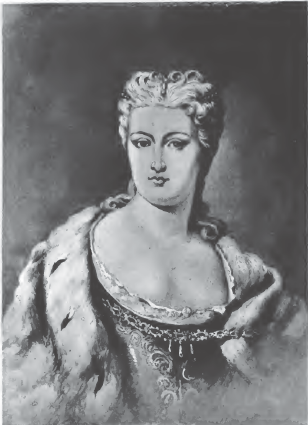Transcriber's Notes:
1. Page scan source:
http://www.archive.org/details/countesscoselar00krasgoog
2. Alternate spelling of author's name: Józef Ignacy Kraszewski
The Countess Cosel
A Romance of History
of the Times of
Augustus the Strong
By
Joseph J. Kraszewski
Translated and Edited by
S. C. de Soissons
WITH PORTRAITS
LONDON
DOWNEY & CO. Limited
12 YORK STREET, COVENT GARDEN
1901
LONDON
GILBERT AND RIVINGTON, LIMITED,
ST. JOHN'S HOUSE, CLERKENWELL, E.C.
LIST OF ILLUSTRATIONS
The Countess Cosel Frontispiece
Augustus II. of Saxony (the Strong)
INTRODUCTION
Joseph J. Kraszewski was born in Russian Poland in 1812. He came of anoble and once wealthy family. His parents quitting their estatesduring the war between France and Russia, the boy was left in the careof his grandparents on his mother's side. From these he first acquireda taste for literature and art. In his eleventh year, Kraszewski wassent to the College at Biala, where he remained until 1826. He thenentered the College at Lublin, and in 1829 he proceeded to theUniversity of Wilno, where he gave his attention principally to thestudy of languages, especially of Old Slavonic, Russian, Latin, Greek,Hebrew, and Arabic. He spent much of his time in reading old documentsand manuscripts, and the materials thus gathered he subsequentlyutilized in his historical romances and monographs.
The novel had at this period begun to be the most popular form ofliterary expression in Western Europe. Kraszewski read and admired theworks of Le Sage, Voltaire, Jean Paul, Hoffmann, and even WashingtonIrving. His first literary efforts were in close imitation of his owncountryman, Count Skarbek, and of Laurence Sterne. He began to write in1829, and at this early period of his life he produced severalnoteworthy novels.
In 1831 he was arrested by the Russian Government for his connectionwith the revolutionary movement; but through the influence of hisaunt--an intimate friend of Prince Dologoruky, the Governor-General ofWilno--he was subjected only to arrest at home, instead of beingdeported to Siberia. Complete freedom of movement was not restored tohim until 1833. In this year he became the leader of a considerableliterary movement in Wilno. He edited there a weekly newspaper, andfrom his pen flowed poetry, dramas,
